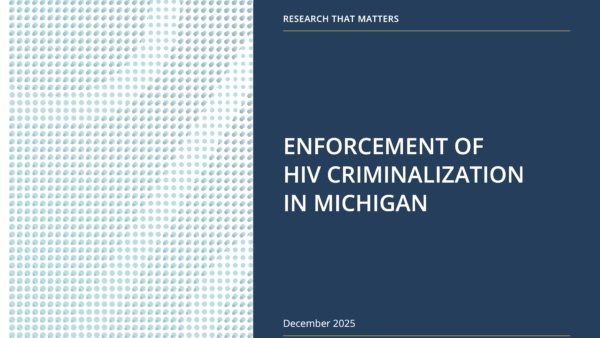DES MOINES, Iowa (AP) – A Des Moines lawmaker plans to introduce legislation that would reduce penalties for HIV-positive people who have sex without disclosing their health condition. Des Moines Democratic Sen. Matt McCoy says he wants to change the law to reduce penalties and focus on people who purposefully infect others with the virus.Under the current law, HIV-positive people who have sex without disclosing their condition can face up to 25 years in prison if convicted, regardless of whether someone is infected. “That is truly a Draconian punishment,” McCoy said. “Being diagnosed with HIV is no longer the death sentence it once was.”
McCoy wants to change the law so someone convicted of intentional or attempted transmission of the virus could be sentenced to a maximum of five years in prison and face a $750 to $7,500 fine. That would put HIV in the same criminal category as transmitting any other communicable disease, such as Hepatitis C. McCoy also wants to end a requirement that people convicted must be placed on a sex offender registry for life.
The Legislature unanimously approved the current law in 1998. The law was approved, in part, as a reaction to a 1996 case in New York where a man intentionally infected 13 women and girls with HIV. Among those voting for the Iowa law was McCoy, who is openly gay. McCoy said the current law made sense based on what was known about HIV and AIDS, but times have changed. “The fact that I’m gay has a real impact on my sensitivity to this issue,” McCoy said. “Clearly, I’m extremely impacted by the gay community and sensitive to people living with HIV. “I just feel it’s the right thing to do for this group of people that have been so stigmatized.”
The proposed changes to the law would take into account whether an HIV-positive person took steps to prevent transmission of the disease, such as using a condom and taking medication that makes it less likely that a sexual partner would be infected. Medications have dramatically improved over the decades, and with proper treatment HIV-positive people can greatly reduce the amount of virus in their blood and make transmission of the disease unlikely.
Randy Mayer, who heads an Iowa Department of Public Health bureau that oversees HIV, said the best way officials can reduce the spread of HIV is to encourage partners to disclose their HIV status to each other. That’s why he agrees with McCoy that the law should be changed. “The law was originally set up to encourage disclosure, but it’s doing the opposite,” he said. “The law is frequently cited by people we work with as something that creates stigma and distrust of the system. … It’s what’s creating stigma.”
McCoy has previously tried to change the law but his bills have become stuck in committees. This time, he said he has support from health care professionals, HIV/AIDS advocacy groups, law enforcement and the Iowa attorney general’s office. Since the Legislature approved the Iowa law, 25 people have been convicted, though only two of those infected partners with HIV. Of those 25, 12 people remain in prison, four are on parole, one is on probation and a trial for one person is pending.
Tami Haught, who became HIV-positive 19 years ago after being infected by her husband, said she supports McCoy’s proposal. Haught works with Community HIV/Hepatitis Advocates of Iowa, which helped draft McCoy’s bill. Haught’s husband became infected through a blood transfusion in the 1980s and died of AIDS in 1996. They married after he was infected. “It takes two people to talk about protection and disclosure. I never had the discussion with my fiance,” she said. “That’s why I hate this law because it puts the entire burden on the HIV person.”









